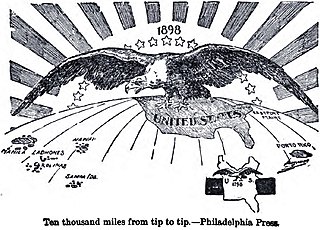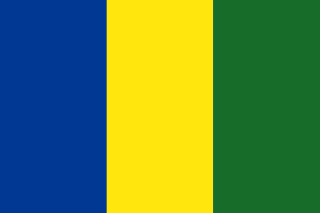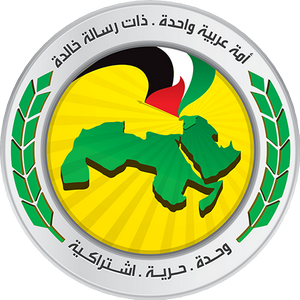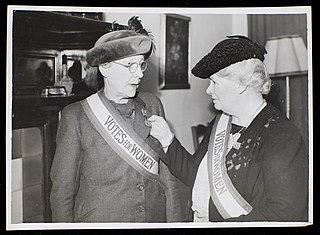
Cultural imperialism comprises the cultural dimensions of imperialism. The word "imperialism" describes practices in which a country engages culture to create and maintain unequal social and economic relationships among social groups. Cultural imperialism often uses wealth, media power and violence to implement the system of cultural hegemony that legitimizes imperialism.

Beginning in late 2002 and continuing after the 2003 invasion of Iraq, large-scale protests against the Iraq War were held in many cities worldwide, often coordinated to occur simultaneously around the world. After the biggest series of demonstrations, on February 15, 2003, New York Times writer Patrick Tyler claimed that they showed that there were two superpowers on the planet: the United States and worldwide public opinion.
Media imperialism is an area in the international political economy of communications research tradition that focuses on how "all Empires, in territorial or nonterritorial forms, rely upon communications technologies and mass media industries to expand and shore up their economic, geopolitical, and cultural influence." In the main, most media imperialism research examines how the unequal relations of economic, military and cultural power between an imperialist country and those on the receiving end of its influence tend to be expressed and perpetuated by mass media and cultural industries.

American imperialism is the expansion of American political, economic, cultural, media, and military influence beyond the boundaries of the United States of America. Depending on the commentator, it may include imperialism through outright military conquest; military protection; gunboat diplomacy; unequal treaties; subsidization of preferred factions; regime change; economic or diplomatic support; or economic penetration through private companies, potentially followed by diplomatic or forceful intervention when those interests are threatened.
The Cairo Conference against U.S. hegemony and war on Iraq and in solidarity with Palestine, generally known simply as Cairo Anti-war Conference, is an anti-war and anti-neo-liberalism conference held regularly since 2002 in Cairo, Egypt. The Cairo Conference set up the International Campaign Against Aggression on Iraq which helped to coordinate the worldwide demonstrations on 15 February 2003. In 2009, the Conference was banned by the government of former Egyptian President Hosni Mubarak.

On 15 February 2003, a coordinated day of protests was held across the world in which people in more than 600 cities expressed opposition to the imminent Iraq War. It was part of a series of protests and political events that had begun in 2002 and continued as the invasion, war, and occupation took place. The day was described by social movement researchers as "the largest protest event in human history".
The Congo Reform Association (CRA) was a political and humanitarian activist group that sought to promote reform of the Congo Free State, a private territory in Central Africa under the absolute sovereignty of King Leopold II. Active from 1904 to 1913, the association formed in opposition to the institutionalised practices of Congo Free State's 'rubber policy', which encouraged the need to minimise expenditure and maximise profit with no political constraints – fostering a system of coercion and terror unparalleled in contemporary colonial Africa. The group carried out a global publicity campaign across the Western world, using a range of strategies including displays of atrocity photographs; public seminars; mass rallies; celebrity endorsements; and extensive press coverage to lobby the Great Powers into pressuring reform in the Congo. The association partially achieved its aims in 1908 with the Belgian government's annexation of the Congo Free State and continued to promote reform until disbanding in 1913.

Syrian nationalism, also known as Pan-Syrian nationalism, refers to the nationalism of the region of Syria, as a cultural or political entity known as "Greater Syria".

The Nordenfelt gun was a multiple-barrel organ gun that had a row of up to twelve barrels. It was fired by pulling a lever back and forth and ammunition was gravity fed through chutes for each barrel. It was produced in a number of different calibres up to 25 mm (0.98 in). Larger calibres were also used, but for these calibres the design simply permitted rapid manual loading rather than true automatic fire. This article covers the anti-personnel rifle-calibre gun.

Immanuel Ness is an American academic, and Professor of Political Science at the City University of New York (CUNY), Brooklyn, School of Humanities and Social Sciences. His academic focus is on worker's organization, migration, mobilization and politics. He is also a labour activist.

The League of Social Democrats of Vojvodina is an autonomist political party in Serbia. Its current leader is Bojan Kostreš, who succeeded Nenad Čanak. They're colloquially known as ligaši (Leaguemen).
Voice of the Arabs or Sawt al-Arab was one of the first and most prominent Egyptian transnational Arabic-language radio services. Based in Cairo, the service became known to many Arabs and non-alike, as the main medium through which former Egyptian president Gamal Abdel Nasser spread his messages on Arab unity and revolutions across the Arab world. Despite its unmatched popularity in most of the 1950s and 1960s, the service no longer commands a large audience and does not play a significant role in domestic Egyptian or regional politics.

The Arab Socialist Ba'ath Party – Syria Region, officially the Syrian Regional Branch, is a neo-Ba'athist organisation founded on 7 April 1947 by Michel Aflaq, Salah al-Din al-Bitar and followers of Zaki al-Arsuzi. The party has ruled Syria continuously since the 1963 Syrian coup d'état which brought the Ba'athists to power. It was first the regional branch of the original Ba'ath Party (1947–1966) before it changed its allegiance to the Syrian-dominated Ba'ath movement (1966–present) following the 1966 split within the original Ba'ath Party. Since their ascent to power in 1963, neo-Ba'athist officers proceeded by stamping out the traditional civilian elites to construct a military dictatorship operating in totalitarian lines; wherein all state agencies, party organisations, public institutions, civil entities, media and health infrastructure are tightly dominated by the army establishment and the Mukhabarat.
The following is a timeline of the history of the city of Cairo, Egypt.

Ba'athism, also spelled Baathism, is an Arab nationalist ideology which promotes the creation and development of a unified Arab state through the leadership of a vanguard party over a socialist revolutionary government. The ideology is officially based on the theories of the Syrian intellectuals Michel Aflaq, Zaki al-Arsuzi, and Salah al-Din al-Bitar. Ba'athist leaders of the modern era include the former president of Iraq Saddam Hussein, former president of Syria Hafez al-Assad and his son, the current president of Syria, Bashar al-Assad.

Helen Crawfurd was a Scottish suffragette, rent strike organiser, Communist activist and politician. Born in Glasgow, she was brought up there and in London.

Rosette Susanna "Rosa" Manus (Dutch pronunciation:[roːˈsɛtəsyˈsɑnaːˈroːsaːˈmaːnʏs] was born 20 August 1881 and died either at Auschwitz or Ravensbruck in 1942. She was a Jewish Dutch pacifist and female suffragist and was involved in women's movements and anti-war movements. She served as the President of the Society for Female Suffrage, the Vice President of the Dutch Association for Women's Interests and Equal Citizenship, and was one of the founding members of the Women's International League for Peace and Freedom as well as its secretary. She firmly believed that women could work together across the world to bring peace. Although Manus was fairly well known in feminist circles in the 1920s and 1930s, she remains relatively unknown today. She was involved in feminist work for about thirty years during her lifetime and was known as a "feminist liberal internationalist."

Patrick Reinsborough is an American writer, activist, social change theorist and practitioner. He is the co-author of Re:Imagining Change: How to Use Story-based Strategy to Win Campaigns, Build Movements and Change the World and contributor to social movement anthologies including Globalize Liberation: How to Uproot the System and Build a Better World and Beautiful Trouble: A Toolbox for Revolution.

Ahmad Zayni Dahlan (1816–1886) was the Grand Mufti of Mecca between 1871 and his death. He also held the position of Shaykh al-Islam in the Hejaz and Imam al-Haramayn. Theologically and juridically, he followed the Shafi'i school of thought.
On 12 February 1983, a women's march was held in Lahore, Pakistan. The march was led by the Women's Action Forum (WAF) and the Punjab Women Lawyers Association. It assembled at Mall Road in Lahore to proceed toward the Lahore High Court in Pakistan to protest against the discriminatory Law of Evidence and other Hudood Ordinances. The marchers were tear gassed and baton charged by police injuring many women. 50 of the marchers were arrested for defying the prohibition of public assembly that was in force. Pakistan's National Women's Day has been held officially on this day, in commemoration, since declared in 2012.













